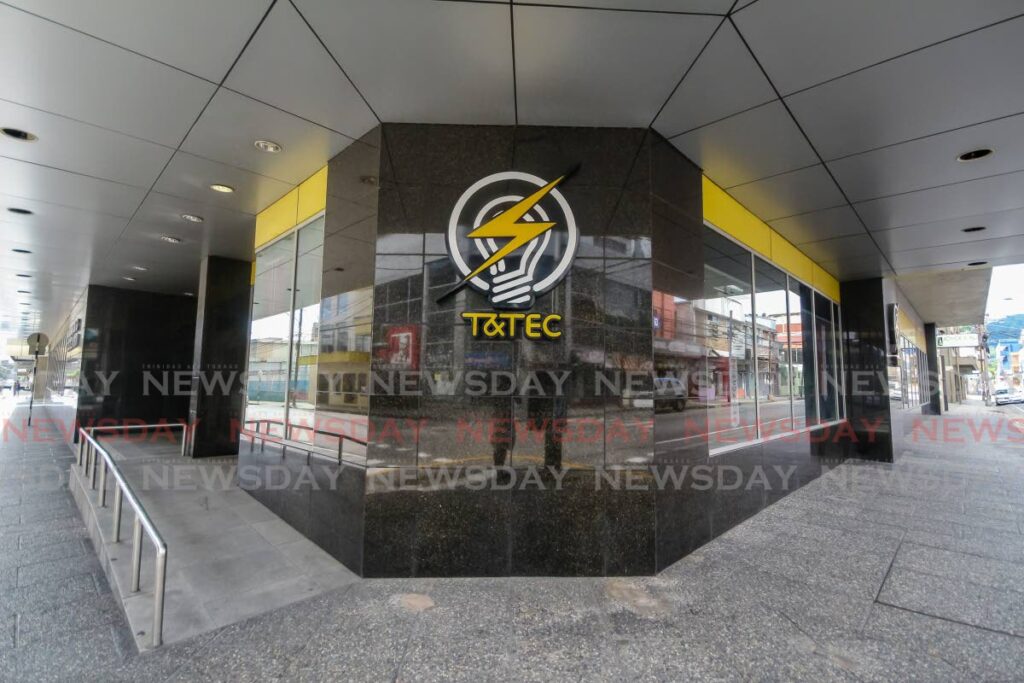RIC: TTEC debt, receivables won't fall on residential customers

The Regulated Industries Commission (RIC) said residential customers will not be asked to take on the burden of paying TTEC’s debts or recovering the large debts owed to the company as part of any increased rates following the rate review.
During an interview on TTT’s NOW morning show on Tuesday, RIC chairman Dawn Callendar said while TTEC owes the National Gas Company a large amount, and is also owed a large amount by the State, this has been included in the rate review.
“We’ve put in the net between what TTEC owes NGC and what is owed to TTEC by state agencies, so there is a net payable to NGC in the rate determination. I think members of the public could take a certain amount of comfort that they are not being asked to settle the TTEC receivables. That is not necessarily the final position. As part of this whole process, we will go back to TTEC and the ministry, eventually, and there are proposals on the table that can settle all of this.”
Executive director Glenn Khan said the large receivables are really in state enterprises, which cannot be cut off. He said the rate review is a projection for 2023 to 2027.
“So all the funds we are providing TTEC with is for future use, not what has happened in the past.”
Callendar said the price review is meant to ensure the efficiencies of the service provider.
“For example, we’ve been having a few brownouts here and there, and an extensive blackout in March, and some smaller ones, so you have to think – does TTEC have the resources to provide the service that we expect?
"We’ve come to expect a higher quality of service, our citizens travel and they see what happens internationally and they would like to enjoy that level of service and of course there’s a cost to providing that level of service, that’s why rates have to change.”
Khan said protecting vulnerable and low-income people is one of the major concerns of the RIC’s chairman and commissioners.
“We have to determine what level of income that is; if we say it’s people who receive government grants and pensions, that sort of thing, the first tranche or tier of the rates, 1-200 kwH is geared to ensure that people in the lowest incomes can have what we consider the basic needs, we call it the lifeline rate.
“We had determined through our engineers, if you have a refrigerator, a TV, two fans, a radio, six or eight bulbs, you would use 200 kWH over two months at the existing rates, so we’ve looked at that and said this should be sufficient for a household that could be considered low-income or vulnerable.”
Asked how TTEC can be held accountable in future, Khan said there were nine guaranteed quality of service standards such as response and restoration of supply; billing punctuality; reconnection after payment of overdue bills, etc, which were established in 2004 and were current.
“When TTEC fails to meet any of those, a customer is entitled to a rebate, a minimum of $60 on their bill, and this has been happening. These are automatic so you don’t have to do anything. We’re not talking about replacing appliances. If these things happen, TTEC has two options: if they can’t do anything about the problem, they ask for us to give them a waiver, but if it is they are culpable, they must compensate all customers who are affected by any of these issues.
“We also have something called the code of practice, which tells TTEC how they should deal with customers. For example, if a vulnerable person can’t pay their bill, TTEC can’t just go and cut them off. They have to call them, find out why they’re not paying their bill and make arrangements for how they can pay their bill going forward. They have the data of customers and they know the characteristics of customers, so if they identify that this person is having problems paying frequently, they’re supposed to reach out to this person and say let’s make an arrangement for how you can pay for your bill.”
Callendar urged citizens to come out to the consultations which will be held on both islands. She said the schedule would be available on the RIC website and would be updated frequently.
“They are a crucial part of the process, it’s where we get an opportunity to hear your concerns, clarify any issues, and we would actually change the rate, between the draft determination and the final, we would include areas where there’s merit to it, so it’s very important, please come out and participate.”


Comments
"RIC: TTEC debt, receivables won’t fall on residential customers"